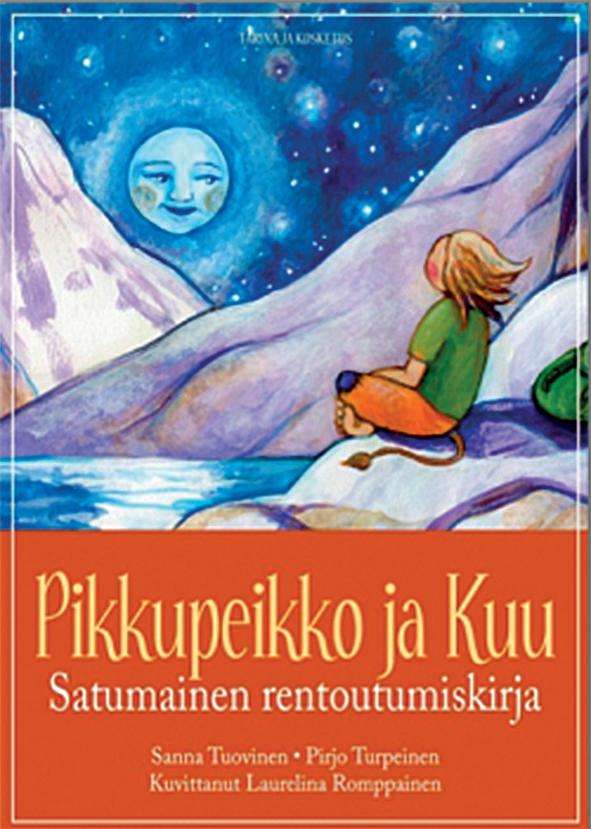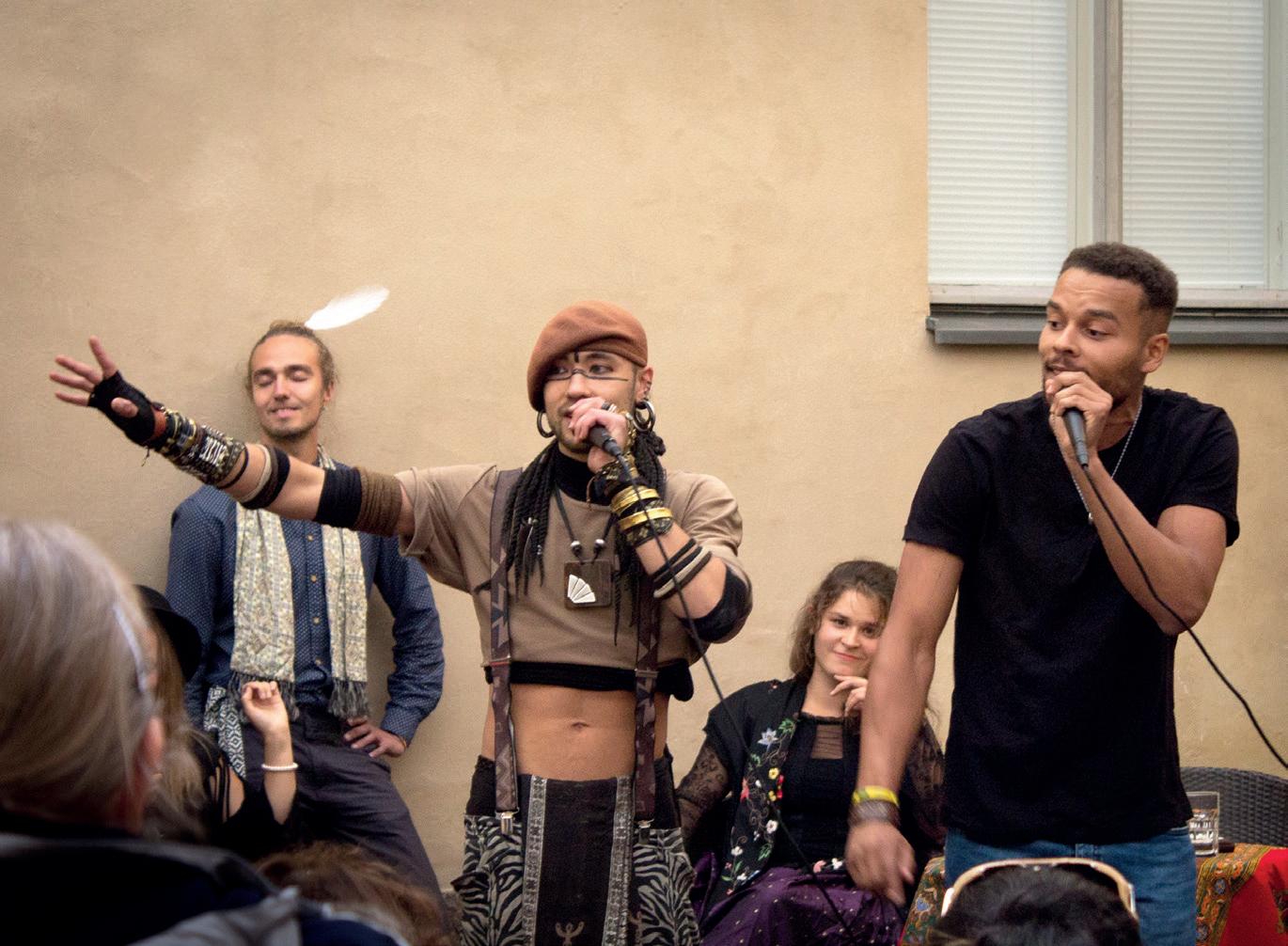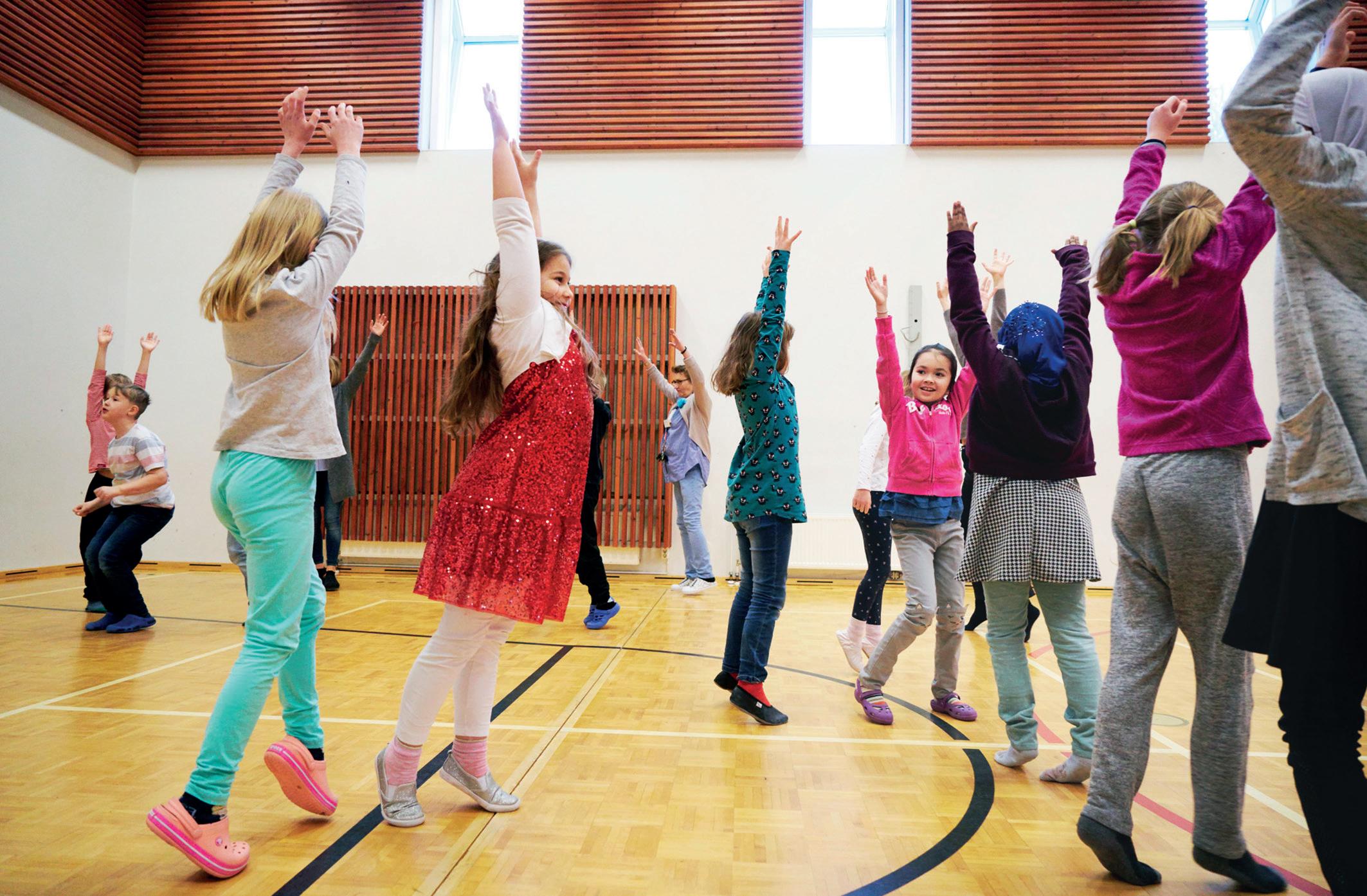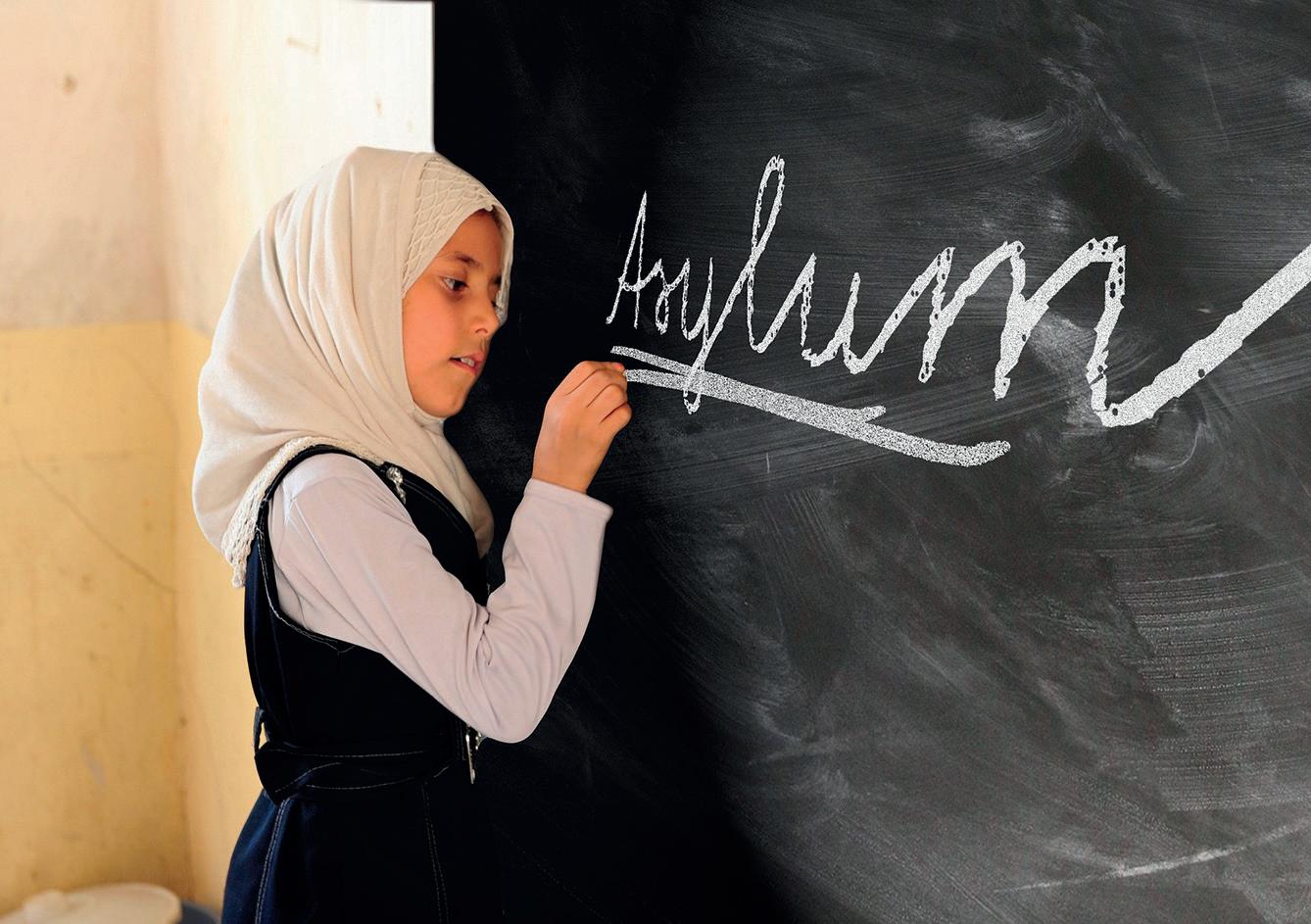
9 minute read
Adoptioperheiden kokemuksia S2-opetuksesta
Lasten lukemisinnon hiipumisesta käydään paljon keskustelua. S2-oppijalle kirjallisuuden opettaminen ja lukemiseen oppiminen on ensiarvoisen tärkeää.
opetussuunnitelmien perusteissa ja aivan keskeinen kehitettäessä koulujen ja oppilaitosten toimintakulttuuria ja opetusta. Kielitietoisuudessa on kyse yhtäältä jokaisen kielellisistä resursseista: mitä kieliä ja kielimuotoja käytämme ja voimme käyttää, miten ne näkyvät oppimisympäristössä ja toimintakulttuurissa, miten niitä arvostetaan ja arvotetaan. Ja toisaalta kielitietoisuudessa on kyse siitä, että tiedostetaan kielen merkitys oppimisessa, opetuksessa ja arvioinnissa. Jokainen koulun aikuinen on kielellinen malli ja jokainen opettaja myös opettamansa oppiaineen kielen opettaja. Kielitietoisuus edellyttää entistä kiinteämpää opettajien yhteistyötä opetuksessa ja arvioinnissa ja velvoittaa myös muiden aineiden opettajat tarkastelemaan opetustaan opettamansa tiedonalan kielen kannalta. Kielitietoinen opetus hyödyttää myös äidinkielellä oppivia lapsia ja nuoria.
Advertisement
OPETUKSEN JA OPPIMISEN HAASTEITA
Tämän hetken suurimpiin haasteisiin S2-näkökulmasta kuuluvat yhtäältä oppilaan arviointi ja toisaalta opetuksen resurssien oikeudenmukainen ja tarkoituksenmukainen kohdentuminen. Perusopetuksen oppimistulosten arvioinnin (Kuukka & Metsämuuronen 2016) myötä todentui se, että vuoden 2004 opetussuunnitelman perusteissa – joiden mukaan arviointi tehtiin - päättöarvioinnin kriteeriksi määritelty taitotaso oli liian alhainen suhteessa perusopetuksen päättövaiheessa oppilailta vaadittavaan eri tiedonalojen kielitaitoon. Uusien perusteiden myötä arviointi toivottavasti muuttuu realistisemmaksi ja oppilaat saavat S2-opetuksessa oppia entistä ainetietoisempaa suomea. Toisen haasteen muodostaa resurssien oikea suuntaaminen, mihin liittyy oppimäärän valinta. Reflektointia ja määrittelyä tarvitaan esimerkiksi sen pohtimiseen, kuka on suomi toisena kielenä -oppilas tai kuinka kauan Suomessa syntynyt ulkomaalaistaustainen oppija tarvitsee S2-oppimäärän opetusta.
Haasteena on myös se, miten koulujen toimintakulttuurissa todennetaan kielitietoista opetusta kaikille oppilaille. Tähän kielitietoisen ja kulttuurisesti moninaisen koulun ja oppilaitoksen kehittämiseen toivoisinkin äidinkielen ja S2-opettajien yhteistyötä. Opetuksen kielitietoisuus vaatii myös sille suotuisaa toimintakulttuuria ja ennen muuta johtamista, joka mahdollistaa resursoinnin ja tuen opettajien yhteistyölle opetuksen kehittämiseksi kielitietoisemmaksi.
Lukemisinnon hiipumisesta käydään tällä hetkellä paljon keskustelua. Toisen kielen oppijan kannalta kirjallisuuden opettaminen ja kirjallisuuden lukemaan oppiminen on ensiarvoisen tärkeää. Kirjallisuus rikastuttaa kielellistä ja kulttuurista pääomaa sekä opettaa ymmärtämään erilaisia tekstejä. Jokaisen S2-oppilaankin täytyy saada riittävästi tietoa kotimaisesta kirjallisuudesta, jotta hän voisi rakentaa identiteettiään laajassa kontekstissa – ja jotta sivistykselliset oikeudet toteutuisivat yhdenvertaisesti.
Lähteet
Kuukka, K. ja Metsämuuronen, J. 2016. Perusopetuksen päättövaiheen suomi toisena kielenä (S2) -oppimäärän oppimistulosten arviointi 2015. Julkaisut 13:2016. Kansallinen koulutuksen arviointikeskus.
Opetushallitus 2014. Perusopetuksen opetussuunnitelman perusteet. Opetushallitus. Määräykset ja ohjeet 2014:96. Vammala: Vammalan Kirjapaino Oy.
Martha Vuori Kari Kuukka
Adoptiovanhemmista moni kokee S2-kielen tärkeänä oman lapsen kielen kehityksen kannalta. Sen saamisessa on kuitenkin jonkin verran vaihtelua riippuen asuinkunnasta ja koulusta. Moni adoptiovanhempi sanoo, että varhaiskasvatuksessa sekä ala-asteella lapsen saaminen S2-opetukseen on sujunut ongelmitta. Jotkut ovat myös joutuneet aktiivisesti vaatimaan lapselleen S2-kielen opetusta, kun koulun puolesta on ajateltu, ettei adoptiolapsella ole siihen tarvetta.
Lisäksi osa tuo ilmi, että S2-opetusta ei ole järjestetty, koska koulussa ei ole toteutunut vaadittu minimi ryhmäkoko. Päinvastaisiakin kokemuksia on. Esimerkiksi niin, että lapsen koulussa on ollut iso määrä S2-oppilaita. Tällöin ongelma on ollut se, ettei koulu ole pystynyt tarjoamaan S2-opetuksessa riittävän räätälöityä S2-kielen opetusta nimenomaan adoptiolasta ajatellen. Jotkut adoptiovanhemmat kokevat, ettei S2-opetus ole ollut tarpeeksi vaativaa. Adoptiolapsia saatetaankin verrata maahanmuuttajataustaisiin lapsiin. Tällöin on voinut käydä niin, että opetus on vaatimustasoltaan osalle adoptiolapsista liian matalaa. Adoptiolapsille olisi tärkeää saada laadukasta ja räätälöityä S2-kielen opetusta, jossa huomioidaan adoptiolasten erityiset tarpeet. Adoptiolapsia ei pitäisi verrata yksiselitteisesti maahanmuuttajataustaisiin lapsiin. Koulun tulisi huomioida myös yläasteelle siirryttäessä adoptiolapsen mahdollinen tarve S2-opetukseen. Vanhempien kokemukset adoptiolasten S2-kielen opetuksesta vaihtelevat.
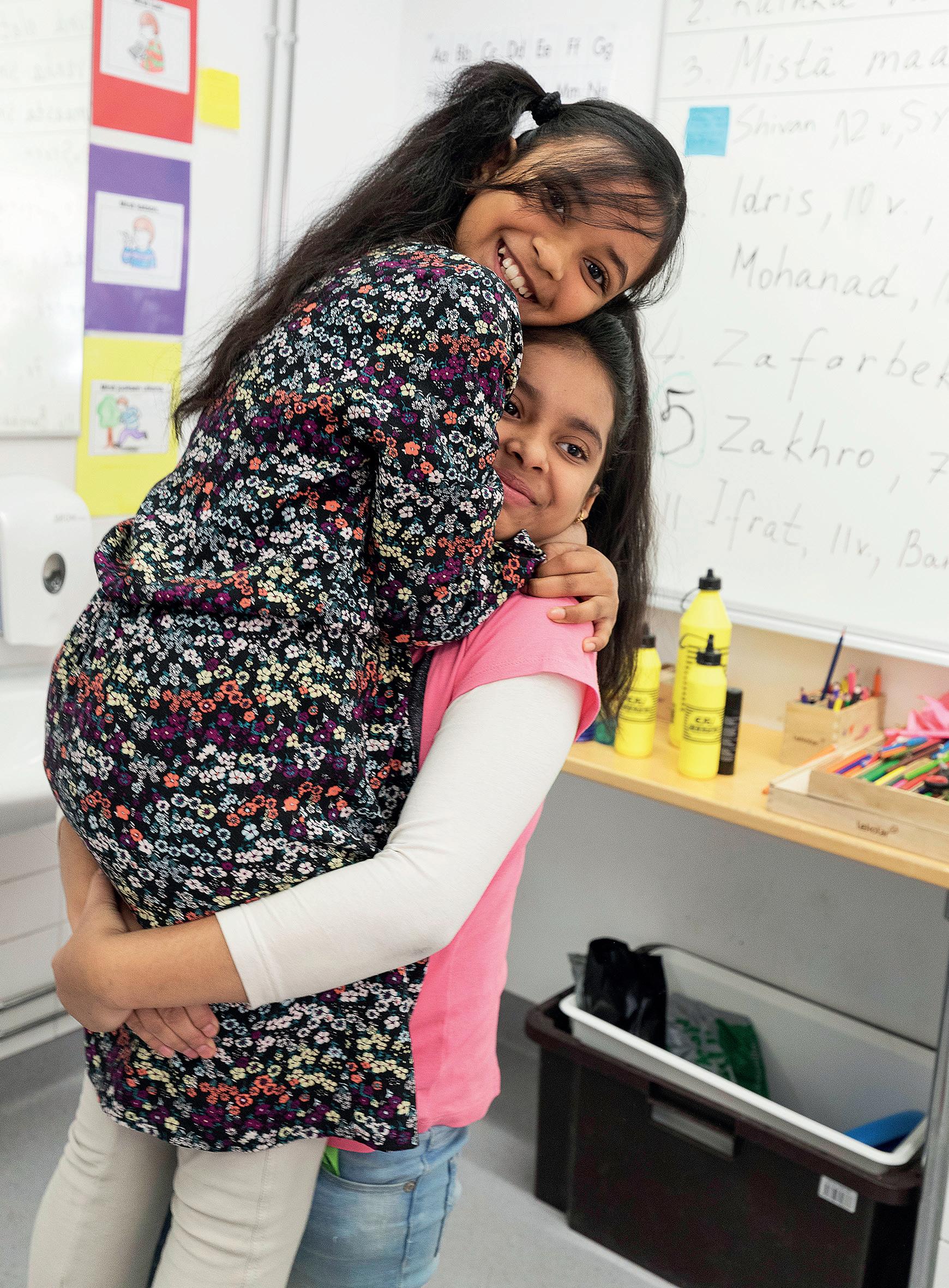
S2-kielen opetuksen laatu ja laajuus tuntuukin vaihtelevan sekä kunnittain että kouluittain. Osa adoptiolapsista opiskelee niin sanotussa normaalissa äidinkielen opetuksessa mutta räätälöidysti huomioiden muun muassa omat tavoitteet.
Tiedot perustuvat avoimeen kyselyyn, johon vastasi yhteensä 13 adoptiovanhempaa. Osalla vastaajista oli kokemusta S2-opetuksesta useamman adoptoidun lapsen osalta.
Creating a new, multilingual workshop model Be Brave and Fair workshops
an interview with theatre pedagogue Nóri Varga by Helena Korpela
During the past year All Our Children’s Be Brave and Fair activities have focused on developing the activities into ever more open and diverse direction. One practical example of this work is the creation of the new multilingual workshop model.
The idea of the new workshop model is to let every participant to examine the topic of diversity and anti-racism through experiential and art pedagogical elements. The workshop’s main idea is to deconstruct everyday, language-based power structures between the participants, by using an existing language unfamiliar to the participants. The new workshop model is aimed mainly for secondary school students and youngsters but can also be facilitated for primary school students.
The workshop is created by Nóri Varga, a second year MA-student in theatre pedagogy at the Theatre Academy of the University of the Arts Helsinki (TeaK) as part of her practical studies. The workshop was created through series of pilot workshops facilitated in three different child and youth groups in the capital region. One of them being a multilingual preparatory school class of 10–12-year-olds, another a school class of native Finnish speakers aged 11–12 years and a third being a group of youngsters aged 15–23 years and connected by Chinese language. The pilot workshops were facilitated in Nóri’s mother tongue Hungarian. The starting point of this new workshop model is to facilitate and give

and extra-linguistic communicational forms to express myself and to create contact with the world around me. Of course, it can be challenging, not just for me, but also for the people and the society around me. I wanted to base the workshop on this common experience shared by me and the children and youngsters who are from other countries. In the workshops the intention was to explore how we find a way to communicate and work together without a common language.
Theatre pedagogue Nóri Varga.
the instructions in a language that the participants do not understand. This means that all the participants are in the same boat of trying to figure out what they are asked to do. In the beginning of the workshops the participants are asked to help each other to follow and to figure out the instructions. When somebody understands something, they are asked to share the information to others to proceed forward.
COULD YOU TELL SOMETHING ABOUT HOW WAS IT FOR YOU TO CREATE THE WORKSHOP, NÓRI?
As I started to think about the concept of the workshop, I wanted to build in some fundamental experiences I had related to language, and how it feels living in Finland as a foreigner and facing otherness this way. As I moved here, I had the chance to discover a wide range of linguistic
WHAT DO YOU THINK IS THE MEANING OF THE LANGUAGE IN THIS KIND OF WORKSHOP – WHEN THE LANGUAGE IS SOMETHING UNFAMILIAR?
The significance of using my native language (Hungarian), which no one spoke, was different for every group. For example, in a preparatory class, where most of the students already had experienced linguistic challenges in their everyday lives, I think, the workshop could have a liberating potential. In the workshop they didn’t have to understand the language perfectly. The goal was not to learn the language or to memorize it, but to have a pragmatic understanding of it. They just had to have a grasp to be able to proceed forward together. And I think it helped a lot that the teachers played together with the kids. The teachers had no idea about the instructions either, they were all on the same level in this sense. It was inspiring for the kids to be in the same shoes as
their teachers, and the traditional hierarchies were challenged by the foreign Hungarian language.
HOW ABOUT IN THE GROUP OF THE NATIVE FINNISH SPEAKERS? I think in this kind of class, it has a reflecting importance. It can make the participants to think about their other school mates or city mates, who have no privileges in that sense. And on the other hand, in the workshops I had, I think, it changed something in the class dynamics. The ones who are not usually very active in school, when it comes to verbal skills and performativity, had now a possibility to express themselves in other ways than in the traditional verbal communicational forms. Also, one of the teachers told me that the group dynamic of the class was different during this workshop compared to other courses. I guess it’s because the workshop focuses on social skills, on working together differently and on non-verbal expressions, and other type of cognitive understanding. I use some methods of experiential education, I interpret the linguistic challenge as a jigsaw situation, where the individual success is the group’s success, and the group cannot succeed without working together, involving everybody.
COULD YOU PLEASE TELL SOMETHING MORE ABOUT THE SKILLS THIS WORKSHOP REQUIRES?
Basically, for the workshop there are no specific requirements. Of course, we are encouraging the participants to find their own challenges. The participants have to use their body in multiple ways; to use different expressions, to dance, to move, to communicate with their bodies in other ways than in their everyday school life. In some of the games they have to use their voice not to form words, but to create and change sounds.. They are asked to draw, even to create installations… A puppet created by the participants together in one of the workshops.

WHAT KIND OF FEEDBACK DID YOU RECEIVE FROM THE PARTICIPANTS ABOUT THE EXPERIENCE?
Inviting them to reflect on the experience, I used a so called ‘Map of Feelings’. It’s a big paper with four corners called: challenged; lost; strong and happy. During and after the workshop the participants could situate and draw themselves on the map based on how they feel themselves in that specific moment. In all the different groups all the different corners were quite evenly used. I encouraged the participants to tell more about them, and in the preparatory class they expressed that they really enjoyed the games. With the youth group we were able to have some reflective discussions in English and they expressed that it was a well-functioning group challenge for them. They felt that they had to work together not only because of the games but because of the language challenge given to them. It was also nice to notice that after the experience they had a lot to share together about group dynamics and about power structures.
WHAT ARE YOUR HOPES FOR THIS WORKSHOP?
In general, I would say that I hope it leads a person towards understanding the fact that working together is necessary to live together. And that if we change competition with co-operation, we can have a more successful life. It also gives an opportunity to rethink your privileges and your social situation. I think the reflection on this situation, on how our world works, is very important, even if it would be a cliché. I hope that in the workshop you can try out different roles; you can be the person who has the otherness, and on the other hand you can be the one who involves others and feels happy about it.
Take part in the Be Brave and Fair facilitator training on the 5th and 6th of October in Helsinki and become a workshop facilitator! For more info: http://www. yhteisetlapsemme.fi/ en/be-brave-and-fair/




